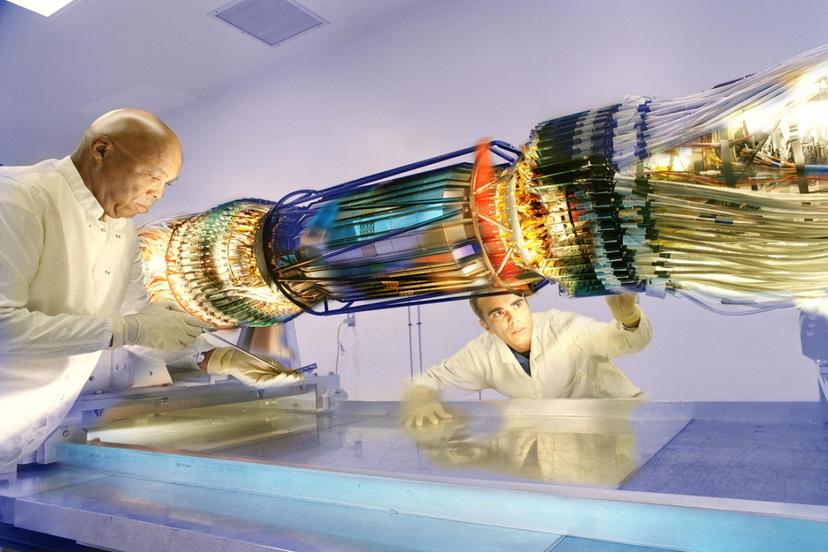Mathematics and Physics

Structure
Since the 1800s, the fields of mathematics and physics have grown so much that each profession has its own specialized workers. Yet the lines between the two fields, and even among these and other sciences, are not as clear as they used to be. Professionals in these fields orbit the earth, help cure diseases, develop fuels for energy and warmth, and even contribute to understanding skateboarding, karate, and the sound systems at concerts.
Because the two fields are related, physicists and mathematicians work in many of the same areas. Many ideas and developments in physics, chemistry, the biological sciences, astronomy, and even social sciences (like economics and psychology) rely on ideas from mathematics. These scientific fields offer many careers, including such areas as astronomy; space technology; energy and resources; earth, ocean, and space science; electronics; industry; computer science; medicine; communications; environmental science; and consulting. Mathematicians and physicists work as engineers, teachers, researchers, lab technicians and supervisors, acoustical scientists, astronomers, astrophysicists, medical physicists, and geophysicists, as well as other positions. Knowledge in math or physics opens opportunities even for writers, lawyers, and administrators.
Mathematicians include applied mathematicians who use mathematical theories and principles to address real-world problems. They might create mathematical models to calculate the characteristics of new products or systems or population trends. Theoretical mathematicians work to expand and define the scope of mathematical knowledge.
Employment opportunities exist worldwide in government, industry, schools, and private organizations. For instance, mathematicians like statisticians, operations researchers, and actuaries work in government agencies such as the Department of Health and Human Services, the General Accounting Office, and the Office of Management and Budget. They help gather information on how many people are likely to get cancer from smoking. They help the president understand how much money our country has and owes other countries and agencies. They even help figure out how tax laws can benefit certain people. Other agencies that employ mathematicians and physicists include the Department of Energy, the Department of Defense, the National Aeronautics and Space Administration, and the National Security Agency.
